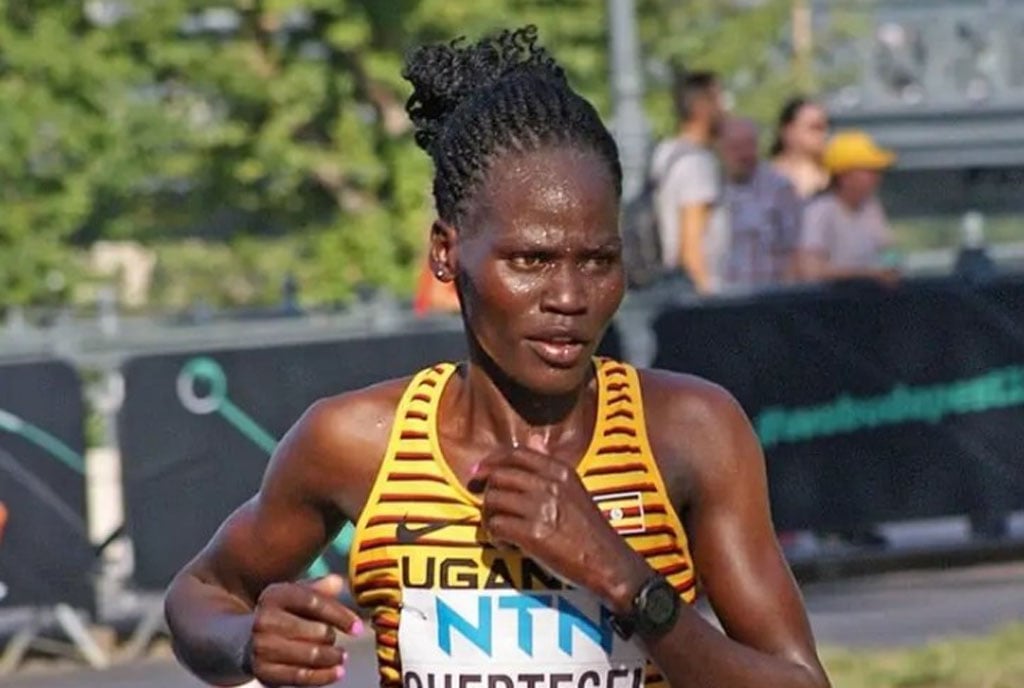Cheptegei’s death highlights link between GBV and property rights

Deceased Ugandan athlete Rebecca Cheptegei. PHOTO/FILE/HANDOUT
What you need to know:
However, the murder of Cheptegei by her ex-boyfriend, Dickon Ndiema, should not surprise us. Her death resulting from domestic violence centres around the property
The thing that has most shocked the world about Rebecca Cheptegei’s murder is the impunity of the killer. To take a celebrated figure like Cheptegei, just returned from her first Olympics in Paris, still in a celebratory mood, to douse her in petrol and set her alight, feels like a slap in the face.
However, the murder of Cheptegei by her ex-boyfriend, Dickon Ndiema, should not surprise us. Her death resulting from domestic violence centres around the property. Violence against women centres around property in the fact that women and girls are seen as property over whose bodies property– in the form of cash or cows–can be exchanged. Put another way, women and girls are transactional. The proceeds from transactions over women (bride price) is often used to secure land. Therefore women, land, property, cash, and cows are intrinsically bound up. The necessity to control this ‘capital’ means controlling the woman’s body. Violence is the method used to ensure control.
In the 1990s MIFUMI embarked on microcredit, giving loans to women to run small businesses. Over time we realised that the women were not repaying the loans. We discovered that their partners took things on credit and beat them up when they asked for their money back. This led to MIFUMI’s work on domestic violence which continues to date. This was happening at a micro level of what we now see at a very public, macro level, with the murder of Cheptegei.
Cheptegei was punished for breaking out of this gendered mould by owning property and by having the capacity to fight for her land. She was autonomous. She had the means to lead an independent life free from her abuser and was strong-minded in trying to fulfill her aspirations. These attributes in a woman are anathema to the misogynistic man. The act of dousing Cheptegei in petrol is a graphic portrayal of his way of controlling her body and literally erasing her completely.
Cheptegei comes from Bukwo District in eastern Uganda, where the people of this Kalenjin/Sabiny tribe share their ethnic origins with people in neighbouring Kenya in the Rift Valley escarpment. It is in this region in Trans Nzoia county that Cheptegei bought land and built a small house. MIFUMI works to prevent sexual and gender-based violence in the Kapchorwa region under its HEROES program. Sabiny women engage in subsistence farming and dig vast fields for potato crops. The potatoes, sold in Mbale, come from the sweat of the women who also harvest it. Once it is harvested, the men step in and take over. They send for the pickup, load up, sell and keep the money. Sabiny women are left with no money in their hands and no say over how the money is spent. If they complain, they are beaten.
During our meetings with the community, the women remain silent. The men speak and this is taken as the majority view. Sometimes we hold women-only sessions to encourage the women to air their views. However once in a while, you find a brave woman who stands up and speaks her mind in a mixed sex group, speaking against cultures that are oppressive to women.
Cheptegei is an example of a brave woman, who fought hard and ran hard to forge her path in life. It is tragic that she has not managed to escape the common path of violence against women, but she was a fighter and her fight will live on.
Atuki Turner, Executive Director MIFUMI [email protected]



